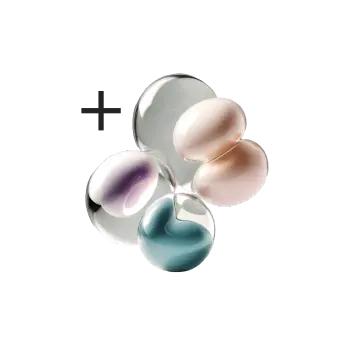Quick version
It is not uncommon to feel sad or depressed during your period, this is often due to the hormonal changes that occur in the body during your menstrual cycle. The feeling can also be intensified by lack of sleep, stress or nutritional deficiencies.
- Exercise regularly – exercise releases feel-good hormones
- Try to sleep well and have a regular circadian rhythm
- Eat nutritiously and avoid blood sugar fluctuations
- Manage stress with the help of rest, yoga or mindfulness
- Try dietary supplements such as magnesium, B6 or omega-3
- Seek medical attention if the symptoms affect your everyday life or quality of life
How hormones affect mood
Your menstrual cycle is largely controlled by two main hormones: estrogen and progesterone. These hormones not only affect your body physically – but also your mood.
Before your period – PMS and PMDS
PMS (premenstrual syndrome) means that many women experience physical and psychological symptoms in the days before their period, some of these
- Depression
- Anxiety or worry
- Irritability
- Sleep problems
- Sore breasts and swelling
PMDS (premenstrual dysphoric syndrome) is a more serious form of PMS that can cause:
- Deep depression
- Depression
- Anger and relationship difficulties
- Reduced lust for life
PMDS affects about 3-5% of women with periods and can greatly affect their quality of life.
During your period – hormones at their lowest
So what happens in your body when your period comes? Well, that's when hormone levels are at their lowest point – especially estrogen, which has an invigorating and stabilizing effect on your mood. It is therefore not uncommon to feel:
- Tired and low
- Sad for no real reason
- More sensitive or tearful
4 other factors that affect us in connection with menstruation
In addition to hormones going up and down, several other factors can play a big role in how we feel:
- Pain: We often suffer from both menstrual cramps, headaches and tense muscles – this can affect your mental well-being.
- Sleep disorders: Many people sleep worse – both before and during – menstruation, which is a contributing factor to worsening our mood given the lack of sleep.
- Stress: High stress levels can intensify PMS symptoms and increase the risk that you experience both anxiety and depression.
- Nutritional deficiency: Low levels of iron, B6 or magnesium can worsen mood swings.
Take care of your well-being
There are several ways to try to relieve the psychological symptoms associated with menstruation, exercise, sleep, reduced stress and a balanced diet are a few. For some, it also helps to try supplements:
- Exercise regularly – exercise helps the body produce endorphins (the “feel good” hormones).
- Sleep well – try to keep regular bedtimes and avoid screen time before bed.
- Eat a balanced diet – avoid sharp blood sugar swings, make sure to eat regularly and nutritiously throughout the day.
- Stress less – yoga, mindfulness and rest can help.
- Supplements that can help – magnesium can relieve both physical and mental PMS symptoms. Vitamin B6 has been shown to alleviate mood swings. Omega-3 can have a positive effect on depression.
Medical help
If you feel that your symptoms are so severe that it is not enough to try to relieve them yourself with the above tips, you should seek help. There are treatments:
- Antidepressant drugs (SSRIs) in low doses can relieve PMS symptoms.
- Birth control pills or a hormonal coil can smooth out hormonal fluctuations.
- Hormone analysis can help you identify any imbalances.
When should you seek care?
You should contact healthcare if you:
- Feel deeply depressed several days each month
- Losing interest in things you usually enjoy
- Have thoughts of harming yourself or not wanting to live
Important! Mental illness during menstruation is common – but not something you should have to live with and accept. Seek help if you feel unwell.


























